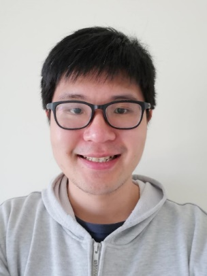报告题目:Superuniversality of Anderson localization transitions in disordered non-Hermitian systems with exceptional points
报告人: 汪晨 副教授(天津大学量子交叉研究中心)
报告时间:2023年3月31日(星期五)14:00-15:30
报告地点:在线报告(腾讯会议ID:368-4368-9521)
报告摘要:
Conventionally, the critical exponents of the continuous phase transitions of a Hermitian system depend only on its symmetries and dimensionalities, which is the celebrated notion of the universality of continuous phase transitions. I will report a superuniversality picture of the Anderson localization transitions in non-Hermitian two-dimensional systems in this talk. The concept of “superuniversality” means the critical exponents of the Anderson localization transitions near exceptional points do not depend on symmetries, irrelevant of the orders of the exceptional points (fourth-order or second-order). Numerically, we found the critical exponent of correlation lengths is 2, which differs from those of all known two-dimensional disordered Hermitian and non-Hermitian systems. On the other hand, in the symmetry-preserved and symmetry-broken phases, the non-Hermitian models with (without) time-reversal symmetry and without spin-rotational symmetry are in the same universality class of Gaussian symplectic (unitary) ensemble. No matter for exceptional points or the symmetry-preserved (symmetry-broken) phase, the universality of localization transitions is further confirmed by showing that the critical exponents do not depend on the form of disorders and boundary conditions. Besides, an experimental proposal to test the predicted results is also discussed.
报告人简介:
Dr. Chen WANG received his Ph.D. degree from Hong Kong University of Science and Technology in 2016 and joined the department of science of Tianjin University in 2019. His research interests include quantum phase transitions induced by disorders, topological phases, spintronics, and quantum chaos. Recently, he has focused on exploring novel phenomena in non-Hermitian systems.
参考文献:
[1] C. Wang and X. R. Wang, Phys. Rev. B 107, 024202 (2023).
[2] C. Wang and X. R. Wang, Phys. Rev B 106, L081118 (2022).
[3] C. Wang and X. R. Wang, Phys. Rev. B 105, 125103 (2022).
[4] H. Yang, C. Wang et al., Phys. Rev. Lett. 121, 197201 (2018).
[5] C. Wang and X. R. Wang, Phys. Rev. B 101, 165114 (2020).